It is hard to believe I’ve only been in China for a week. With the exception of the language barrier I feel that I’ve acclimated very quickly to my new life in Hangzhou.
Our group had safe and smooth flight from O’Hare to Shanghai where we met Professor Pati. Even though the flight was 14 hours long we chased the sun westward so the window shades in our 747 were the only respite from continually bright clouds and sky all the way from Chicago to China as we flew over Canada, Alaska, the Bering Sea, South Korea and finally the East China Sea.
We took a bus from Shanghai to Hangzhou, about a two hour trip. It may sound cliche, but as our bus weaved towards Hangzhou I felt as though I had been dropped into a Soviet-era James Bond movie set—the monstrous scale of unfinished apartment complexes, verdant fields and farm houses abutting sprawling power plants, a concrete suspension bridge rising as a sword into the hazy sky, and most of all reddish sunlight filtering through the thick smog.
We spent the next three days exploring Hangzhou. Sometimes as a whole group with Professor Pati and his family, or in small groups or solo. Our wandering walks were thoroughly enjoyable.
Hangzhou truly has a mixed-use transportation grid. Taxis and buses practically clog the streets while bicycles and electric mopeds scurry in and out of traffic, often in dedicated lanes at the edge of the street while pedestrians stroll past various shops and stalls on wide sidewalks. Traffic at first looks to be a recipe for disaster as lanes vanished in intersections—but after further observation it looks as though the Chinese has a much more fluid approach to driving—constantly speeding up, slowing down, weaving around parked cars and mopeds—versus the rigid, aggressive and territorial driving of American cities like Chicago.
Three aspects of Hangzhou though have stood out to me:
First is the widespread aim at electricity and water conservation. Our dorm rations electricity and reduces water pressure to a functional minimum—living at Holden I completely understand the importance of these measures. Recycling receptacles are common sites along city streets and nearly all the apartment buildings surrounding campus have laundry hanging out the window. While the signage and small steps won’t completely satiate China’s consumption it is very heartening to see a government taking conservation seriously.
Second, is the absolute abundance of greenery. When the sun is not blocked by smog or tall buildings I often find myself under a roof of leaves—the street just outside my dorm is a verdant tunnel. Shrubs and trees hug the sidewalks and squeeze between buildings. The Zhejiang University campus where I’m living abuts a ribbon of forested hills which contains numerous trails—the ridge trail probably runs at least a dozen miles to the south. Only a mile or so from campus is West Lake (think China’s equivalent of Central Park). I spent on free day walking around the Lake (about 10 miles)—the park space was well maintained and lovely. The use of well-marked paths cordoned off green areas allows lush vegetation to thrive among the throngs of locals and tourists.
Third, the Chinese people are incredibly friendly. Growing up in Eugene I was used to making eye-contact with strangers in passing and saying ‘hello.’ The shear volume of people make that difficult in Hangzhou, but whenever I (or our group) stumbled through a food menu or asked for directions or found a local English speaker they were always more than happy to help. When walking around West Lake I was invited by an elderly gentleman to visit the “English Corner” where every Sunday locals gather to practice their Chinese. Never in the US could I imagine myself (or anyone else) spontaneously spending twenty minutes of my day telling total strangers in a city park about my life, but there I found myself in front of a score of inquisitive Chinese.
Currently I’m sitting in a Beijing hotel room, tomorrow we climb the Great Wall—so more stories and pictures will be coming soon!
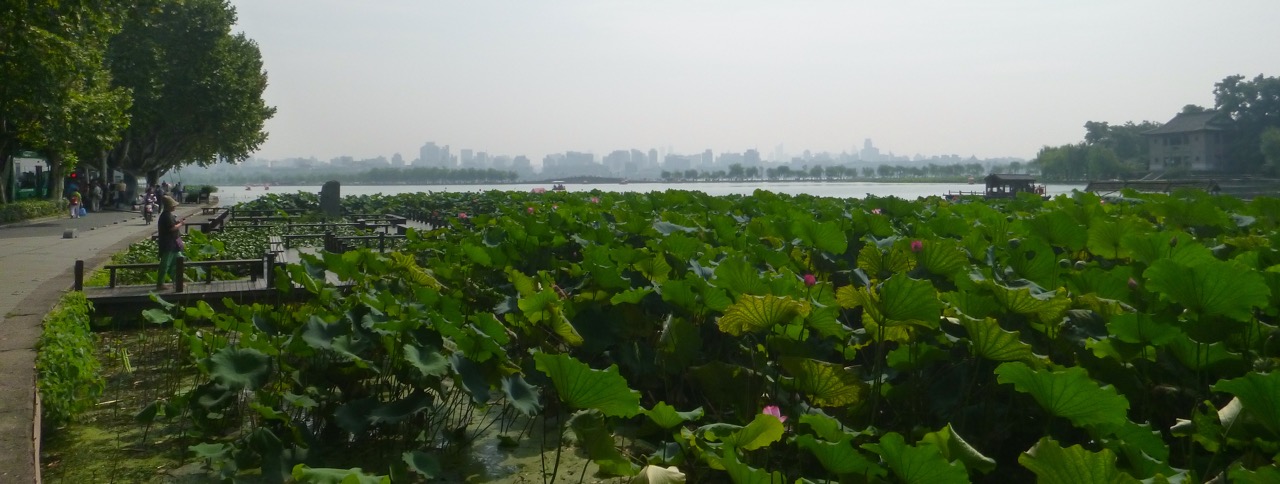
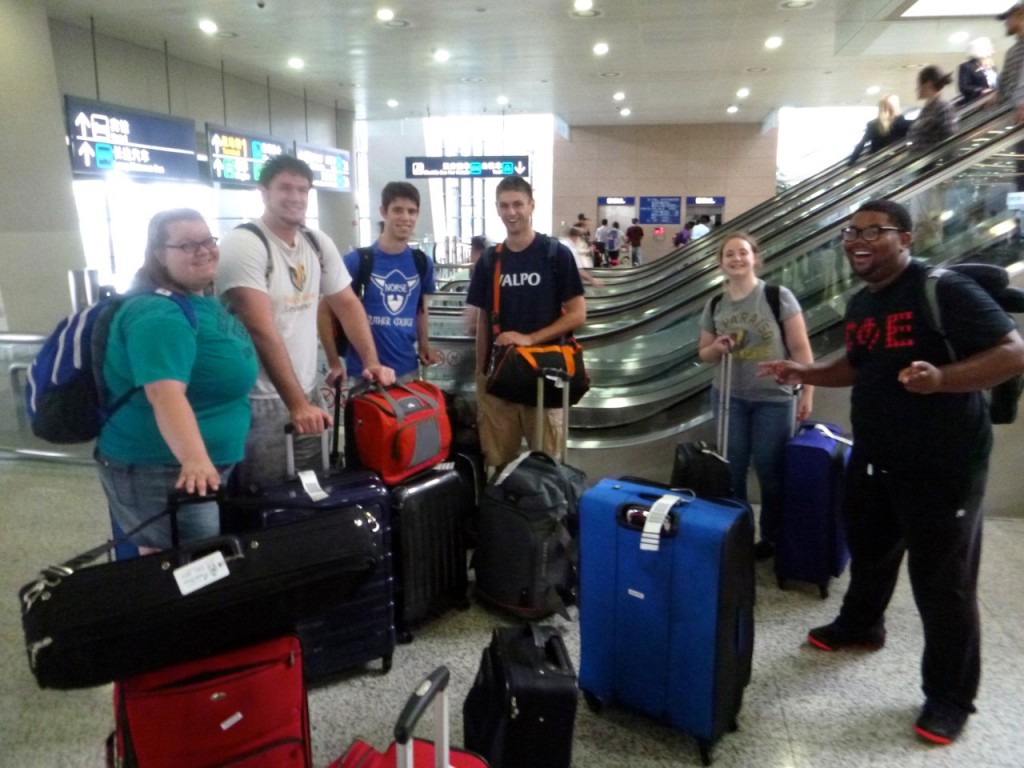
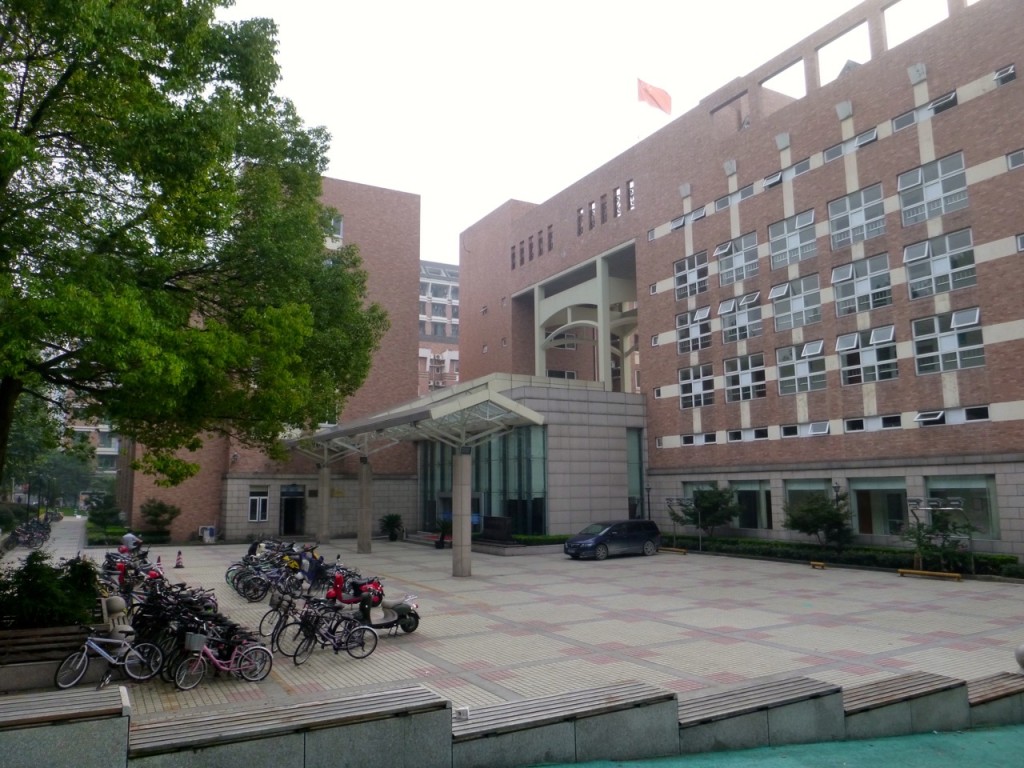
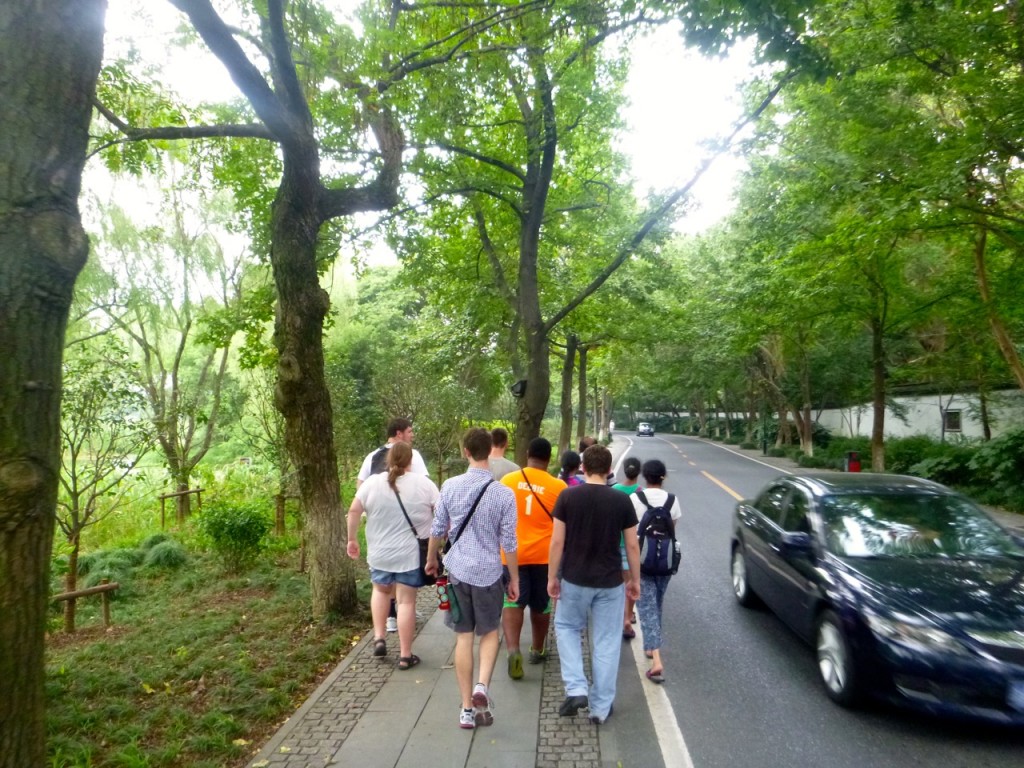
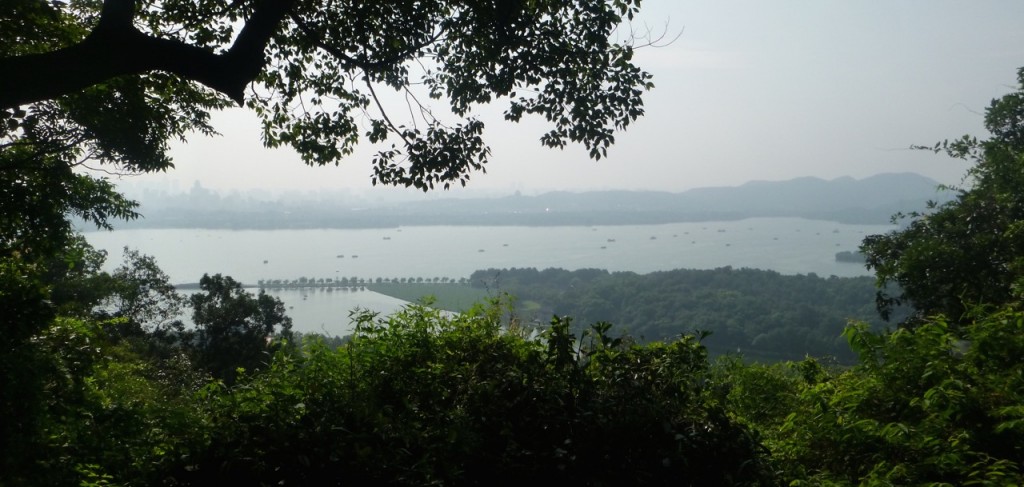
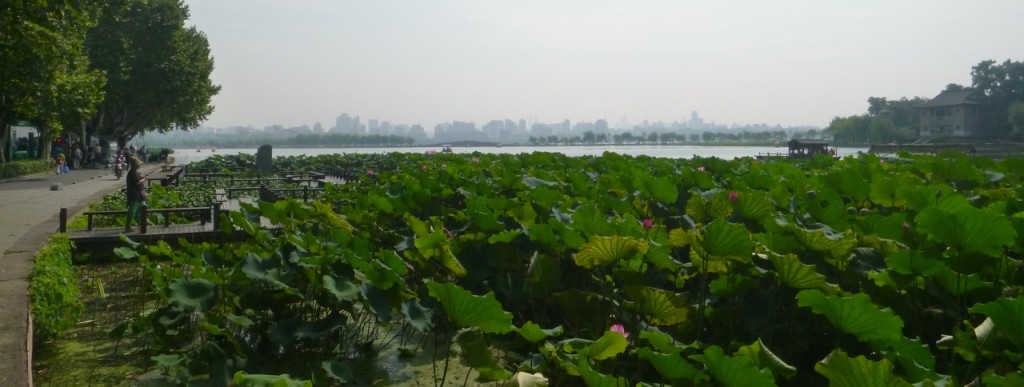
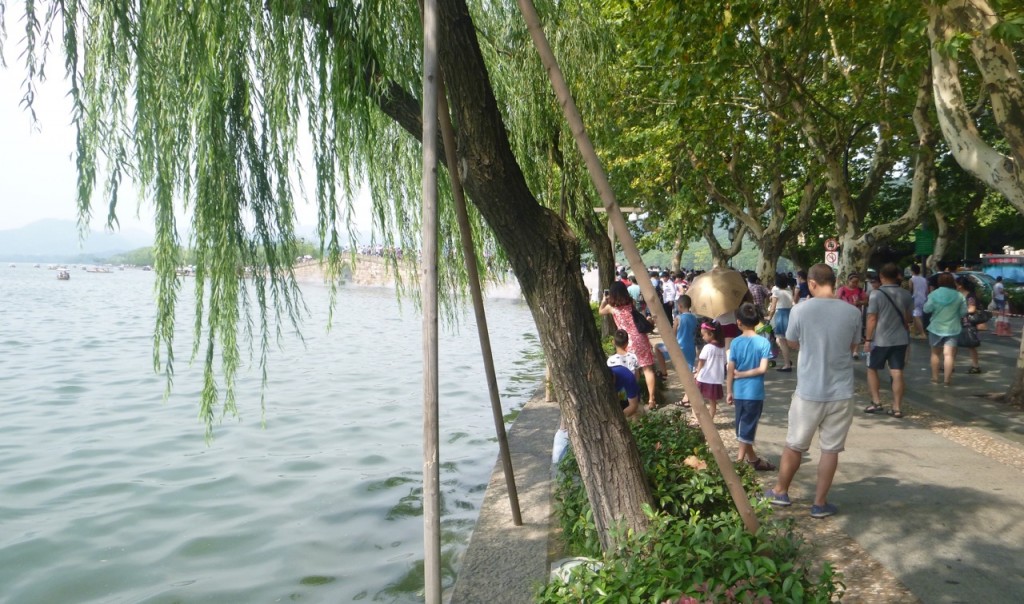
Leave a Reply